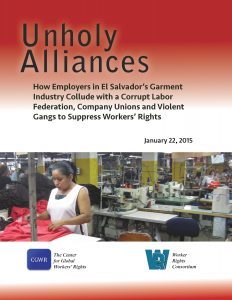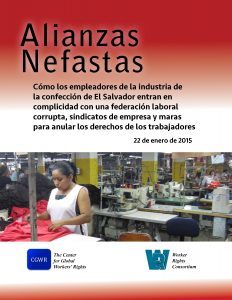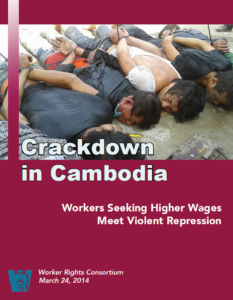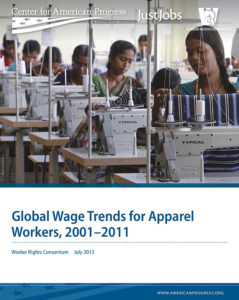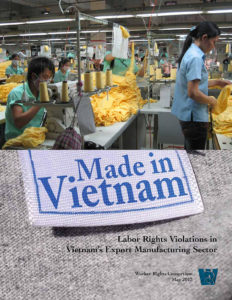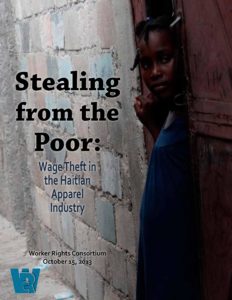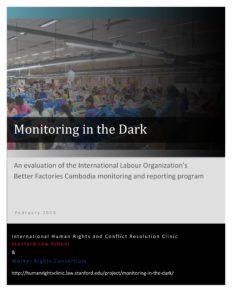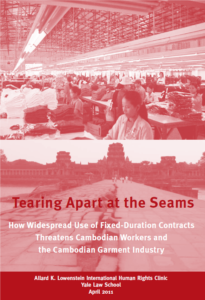Unholy Alliances: How Employers in El Salvador’s Garment Industry Collude with a Corrupt Labor Federation, Company Unions and Violent Gangs to Suppress Workers’ Rights
This report details how garment factories in El Salvador collude with various corrupt
and unlawful entities – from labor federations that take pay-offs from employers, to
company unions, and, in some cases, even violent street gangs – to undermine workers’
right to freedom of association in the country’s apparel industry.
Disponible además en español aquí
Read MoreOn January 2 and 3, 2014, Cambodian security forces engaged in deadly attacks on protesting garment workers in the country’s capital, Phnom Penh. The country’s military police killed at least four people and injured at least 38 by firing assault rifles at workers who were protesting outside garment factories, demanding higher wages. The deadly assault was a response to strikes and demonstrations by tens of thousands of garment factory workers calling for a wage adequate to meet their basic needs.
Read MoreGarment workers in many of the leading apparel-exporting countries earn little more than subsistence wages for the long hours of labor that they perform. And in many of these countries, as this report discusses, the buying power of these wages is going down, not up.
Read MoreThis is a briefing paper for Worker Rights Consortium
affiliate universities and colleges and their licensees concerning
the labor rights environment in Vietnam and, in particular, its
export garment manufacturing industry, a sector which includes
the production of collegiate licensed apparel.
Haiti is the poorest country in the Western Hemisphere. Its expanding garment industry pays wages to workers that are among the lowest in any of the world’s leading apparel-exporting nations. Yet despite benefiting from rock-bottom labor costs – as well as trade preferences under the HOPE II program – garment factory owners in Haiti routinely, and illegally, cheat workers of substantial portions of their pay, depriving them of any chance to free their families from lives of grueling poverty and frequent hunger.
Read MoreFor over a decade, the Cambodian apparel manufacturing industry has sought competitive advantage in the international marketplace by seeking to obtain and preserve a reputation for relatively greater respect for labor rights than other garment-exporting countries in the region. An examination of the Cambodian garment industry’s recent track record with respect to labor rights, however, raises serious doubts about whether this reputation is warranted.
Read MoreOver the past several years, the Cambodian garment industry has undergone a radical transformation in the composition of its labor force. During the mid-1990s, when the Cambodian garment industry experienced its initial boom, the majority of workers were hired on a permanent basis under what Cambodian law calls “undetermined-duration contracts” (“UDCs”). Now, factories hire new workers almost exclusively under short-term, temporary contracts, referred to in Cambodia as “fixed-duration contracts” (“FDCs”), and many workers originally hired under UDCs have faced pressure to convert their permanent contracts to FDCs.
Read More
